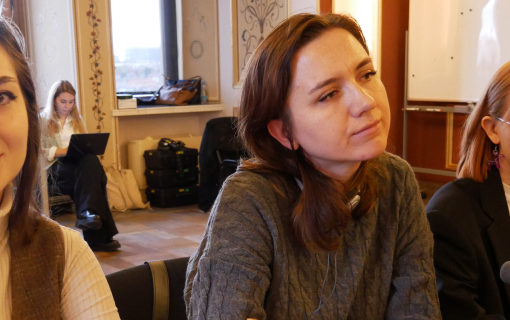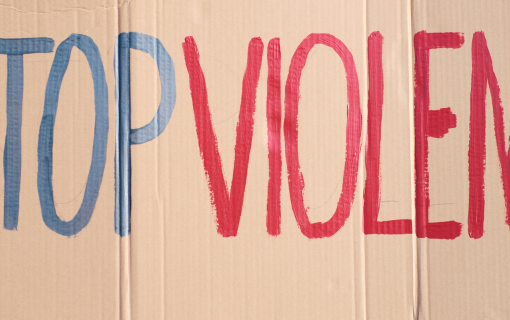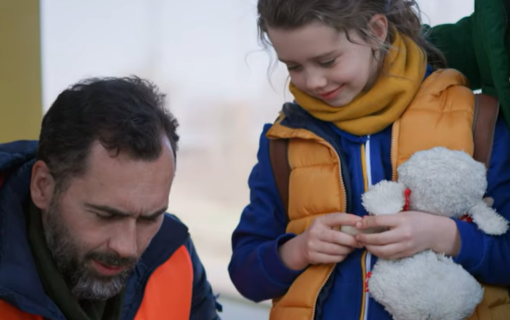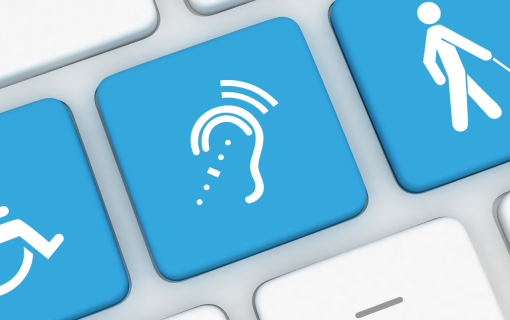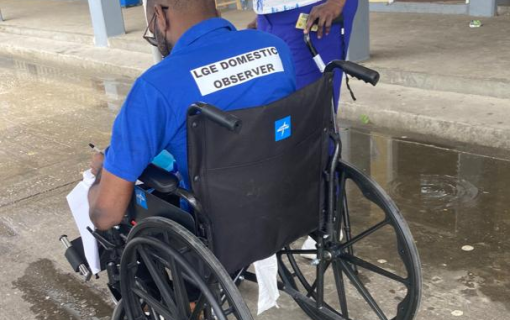Step by Step: Moving Women Forward in Africa
Maimuna Mwidau, a women’s advocate from Kenya and a 2012 Charles T. Manatt Democracy Award recipient, has worked to advance gender equality throughout Africa. Kenya’s 2010 constitution, which guarantees women a place at the table of Kenyan politics, has been the pinnacle of her efforts thus far.
She answers some questions about her work, inspiration and fighting for what she believes in.
Ms. Mwidau, please tell us about gender equality in Kenya, both historically and where it is now.
Kenya has been going through a lot of changes. We voted for the constitution on August 27, 2010. That was the culmination for women's rights in Kenya because we had achieved equality, to some extent, by having affirmative action entrenched in the constitution. That took about almost 50 years to achieve.
Before the 2010 constitution, what rights did Kenyan women have before the law?
Basic rights – just your basic rights; but the constitution was not gender friendly. For example, before the 2010 constitution, Kenyan women could not confer citizenship to their children. Now, the constitution does confer citizenship from mother to child. Other rights in terms of representation – the constitution was very silent on that one. Because we are a very patriarchal society, a very traditional society, women are not easily elected. The 2010 constitution is very clear that we cannot constitute parliament if more than 2/3 is of one gender. It would be illegal. So, we are forced, or rather the constitution forces society, to decide; to look at individuals as leaders instead of looking at them in terms of their gender. In a way, the 2010 constitution is reorganizing our societal thinking, forcing them to choose leadership from either gender, instead of relying solely on one gender.
Why was it decided that a new constitution had to be written?
There was so much agitation in terms of opening up the space, which was done in 1997 when a repeal of a section in the constitution returned Kenya to a multiparty state. People just said we do not want to be ruled from the center. We have to devolve power, economically and politically, so that we can get services closer to the people. That is exactly what the people said during the constitution review – the government is just too far from us. We need it much closer. Services must be much closer. We cannot have everything centralized in a particular area with the kind of corruption we have, the kind of ethnic issues we have. We are dominated by a small clique of people; we are not interested in that. We want to make sure that we have the government to ourselves and serving us.
Let’s talk about the women’s movement. Please tell us about it and how the conversation began to get these issues into the constitution.
I remember when we were going to the field to take views from the public on what kind of constitution they wanted, what kind of governance structure they wanted – there was a deliberate attempt to make sure many women came to give their views.
A lot of women came and expressed their views, saying we need space. We need to represent ourselves [and] we need to see women in leadership positions.
While the commission was asking for women’s views, there were a lot of civic education programs going on the radio. I participated in them myself, explaining to the wider audience what it means to have a new constitution that offers certain issues for women. We were able to convince the public that the majority of the issues we were agitating for were good for women, but were also good for the nation because no nation would develop if more than half of your population is not participating in its development. And Kenyan women are highly informed, highly educated and very capable in terms of representing themselves and society at large.
I think the majority of the government understood that women in Kenya had woken up. They were speaking about the issues. They are capable of mobilizing and making sure that should we fail to have the issues on board, the constitution would not be voted in.
How did you get into this movement and why did you run for office?
I think I have known all along that I wanted to be in this space. My background is political science and I was raised with a political father. So, I think something, somewhere started there. I knew I wanted my space. I knew I wanted my rights. My father was very positive and he accommodated me from a very young age. We would have political discussions. Some of the things I said probably didn’t make sense then, but he always asked for my opinion of what I saw.
After college I came back to my country. That was the first time a woman candidate was aspiring for the presidency. And I just didn't understand. I thought, "Wow, she's great. She is really contesting with other men." And it just made me feel like it's good for me to get back into this system. It took me about five years to get into system to understand the dynamics of what was going on because I was out of the country for a long time.
An opportunity came up. A minister passed away in my region. And I was just discussing the issues with a friend, and I said, “ Wow, that seat is vacant.” I had planned to engage myself into politics at the end of my time with the commission, so I had about two years to go. But this opportunity came two years earlier and a friend called me and said: “Maimuna, I think this is your time, and if you lose this one, you may not be able to get involved.”
So, I approached a couple of political parties. They were very hesitant. So, I had to go back to the Independence party, where my father was a member. I happened to know quite a number of people there and I said: Look, I am interested. I am the only Muslim woman, and you do not have a woman candidate. You would make a big difference if you take a woman candidate and in this case a Muslim one. So, they called me and other candidates for interviews and we had to go for primaries in the region. Because I had done most of my work on the ground in the region, I was very familiar with the areas and the issues. It was not easy. It was very challenging. Everybody was shocked to see a Muslim woman, and I had to put on the hijab at that point.
There was a lot of discussion on when does a Muslim woman take up leadership, in mosques and public forums. I took it upon myself to respond by going on radio, explaining myself, why I wanted to take up leadership, my vision and what I thought I could do. I was the only woman in that particular party, there were about seven men.
I ended up getting the nomination and I went full-throttle and campaigned. My party chairman and a few others came to help me out. A few women were there to help me out. And we did what we did, but we made a difference because it was the talk of the town: there is a Muslim woman contesting a parliamentary seat. I got to meet a lot of people. They got to understand what I am all about. I didn’t feel any bitterness at all losing because, to me, I had actually made a difference.
So, to me, that was the beginning of my political interactions. After that, there was no stopping me.
What you have done in Kenya has been inspirational, and I am sure it has inspired other countries in the region. Could you please tell us about that?
Historically, Kenya has been in the forefront in terms of agitating for women’s space, but it has been overtaken by other countries, because when we start agitating, everyone else takes the ideas and they start implementing them. So, Rwanda, Tanzania and Uganda have done better. Right now South Sudan has been trying to also move in that direction. I have had the opportunity to work in South Sudan with a lot of women, and we were able to start getting them to think in terms of the women’s agenda…so, they should think how important a role they played during their referendum instead of thinking they need to start begging. I said, “You cannot beg at this point, you delivered a nation the way you deliver a baby. Now, once you deliver a baby, it is your responsibility to take care of the baby so that the baby becomes a healthy child and that is how you are going to do it.”
One last question, what does receiving the IFES democracy award mean to you?
In the movement, we often acknowledge each others’ efforts, but I never thought about it as something that I would be recognized for. I was just doing it because I believed in it. And I enjoyed doing it. When you do things for a long period of time, it becomes part of you and you don’t think about it.
To be recognized has really lifted my spirits. It has provided another platform for me to move from. I had reached a point where I was saying, maybe there is not much more I can do. But now that I have been recognized, I feel like “Wow! I need to raise my voice even higher” And that is exactly what I feel I am going to do.
It is really wonderful. I wish my dad was here to see it, he would have been proud. My family, they are over the moon. I spoke to most of my women members from the movement, and they say: “Maimuna, you deserve it. You have been consistent and your win is our win.” And I loved that. When people can own something and we own it together – it is a great honor. And this is a reflection of Kenyan women. The fact that I have been recognized, to me is a recognition of each and every woman we have worked with, because if they were not there, we would not be able to do anything because Maimuna alone can’t do it. It is a collective effort. So, for me it is a wonderful, wonderful gift. It has made my life better.





